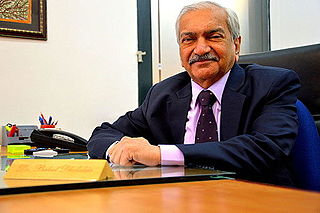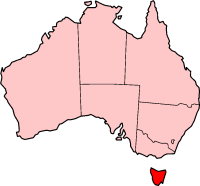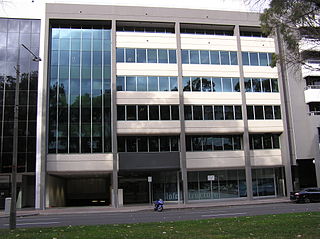
The Bureau of Labor Statistics (BLS) is a unit of the United States Department of Labor. It is the principal fact-finding agency for the U.S. government in the broad field of labor economics and statistics and serves as a principal agency of the U.S. Federal Statistical System. The BLS collects, processes, analyzes, and disseminates essential statistical data to the American public, the U.S. Congress, other Federal agencies, State and local governments, business, and labor representatives. The BLS also serves as a statistical resource to the United States Department of Labor, and conducts research measuring the income levels families need to maintain a satisfactory quality of life.

The Bureau of Economic Analysis (BEA) of the United States Department of Commerce is a U.S. government agency that provides official macroeconomic and industry statistics, most notably reports about the gross domestic product (GDP) of the United States and its various units—states, cities/towns/townships/villages/counties, and metropolitan areas. They also provide information about personal income, corporate profits, and government spending in their National Income and Product Accounts (NIPAs).

The Civil Aeronautics Board (CAB) was an agency of the federal government of the United States, formed in 1938 and abolished in 1985, that regulated aviation services including scheduled passenger airline service and provided air accident investigation. The agency headquarters were in Washington, D.C.
The Australian Bureau of Agricultural and Resource Economics and Sciences (ABARES) is a federal research branch of the Australian Government Department of Agriculture, Water and the Environment, located in Canberra, Australia. ABARES was established on 21 August 1945 as the Bureau of Agricultural Economics (BAE), and is also involved in commercial consultancy. It was merged with the Bureau of Rural Sciences (BRS) in 2010. The main role of ABARES is to provide "professionally independent data, research, analysis and advice that informs public and private decisions affecting Australian agriculture, fisheries and forestry”. ABARES maintains the AgSurf database which includes farm survey data on farm performance, production benchmarks, farm management, socioeconomic indicators relating to the grains, beef, sheep and dairy industries in Australia. ABARES has received funding from business and industry groups. ABARES' website notes that "Over half of ABARES' external revenue is derived from commercial consulting work."

The Australian continent was first settled when ancestors of Indigenous Australians arrived via the islands of Maritime Southeast Asia and New Guinea over 50,000 years ago.
The Productivity Commission is the Australian Government's principal review and advisory body on microeconomic policy, regulation and a range of other social and environmental issues.

Michael Jay Boskin is the T. M. Friedman Professor of Economics and senior Fellow at Stanford University's Hoover Institution. He also is chief executive officer and president of Boskin & Co., an economic consulting company.

The Department of Trade and Industry is the executive department of the Philippine government tasked as the main economic catalyst that enables innovative, competitive, job generating, inclusive business, and empowers consumers. It acts as a catalyst for intensified private sector activity in order to accelerate and sustain economic growth through comprehensive industrial growth strategy, progressive and socially responsible trade liberalization and deregulation programs and policymaking designed for the expansion and diversification of Philippine trade – both domestic and foreign.
Green jobs are, according to the United Nations Environment Program, "work in agricultural, manufacturing, research and development (R&D), administrative, and service activities that contribute(s) substantially to preserving or restoring environmental quality. Specifically, but not exclusively, this includes jobs that help to protect ecosystems and biodiversity; reduce energy, materials, and water consumption through high efficiency strategies; de-carbonize the economy; and minimize or altogether avoid generation of all forms of waste and pollution." The environmental sector has the dual benefit of mitigating environmental challenges as well as helping economic growth.

Bakul Harshadrai Dholakia is the former Director of IIM Ahmedabad (2002–2007). Prior to that, he was the Dean at Ahmedabad (1998–2001) and a professor in Economics He was also the Director General of International Management Institute, New Delhi. Prior to joining IMI New Delhi, he was the Director of Adani Institute of Infrastructure Management and Gujarat Adani Institute of Medical Sciences, Bhuj.

The Tasmanian Freight Equalisation Scheme is an Australian Government scheme to provide financial assistance to shippers of freight between Tasmania and mainland Australia. The scheme aims to assist in alleviating the sea freight cost disadvantage incurred by shippers of eligible non‐bulk goods moved between Tasmania and the mainland of Australia. It provides a freight subsidy to producers selling into Australian domestic markets, but not for exports outside of Australia.

The Department of Infrastructure and Transport was an Australian government department. It was formed in September 2010, following the federal election in August 2010. The department absorbing parts of the Department of Infrastructure, Transport, Regional Development and Local Government. Regional development and local government functions were sent to the Department of Regional Australia, Regional Development and Local Government. Following the 2013 federal election, the department was renamed on 18 September 2013 to become the Department of Infrastructure and Regional Development, regaining regional development and local government functions.
The Australian Space Office (ASO) was an agency formed by the Hawke government in 1987 to oversee the National Space Program. The office worked on the initiative along with the Australian Space Board, later the Australian Space Council. As part of the larger National Space Program, the ASO was established specifically to act as the secretariat and day-to-day manager of the advisory decisions made by the ASB/ASC. The office was abolished in 1996 by the Howard government after a review by the Bureau of Industry Economics.
The Australian Space Board was a board that made up part of the Australian National Space Program initiative from 1986 until it was superseded by the Australian Space Council in 1994.

The National Space Program was a set of policies and organisations under the Hawke and Keating governments created with the goals of developing a national space industry in Australia. When the Howard government came to power in 1996 the program was abolished following the advice of the Bureau of Industry Economics. The National Space Program was generally considered a failure by most media after its demise. During its existence it was crippled by a lack of budget, and multiple white elephant projects.
The Industry Commission was a commission formed by the Australian government in 1990 to oversee industry matters. In 1998 with the passing of the Productivity Commission Act 1998 the bureau was merged with the Bureau of Industry Economics, and the Economic Planning Advisory Commission to create the Productivity Commission.
The Economic Planning Advisory Commission was a commission formed by the Australian government in 1983 with the goal of investigating medium and long-term economic and social issues, and providing advice to the government on these matters. The council was formed in response to the WA Inc scandal a few years prior. In 1998 with the passing of the Productivity Commission Act 1998 the bureau was merged with the Industry Commission, and the Bureau of Industry Economics to create the Productivity Commission.
Auspace Pty Ltd was an Australian aerospace company formed on 7 June 1982 as a joint-venture between Hawker de Havilland Australia and SA Matra Espace. It was primarily known for its work as a major contractor for the Keating National Space Program that took place between 1986 and 1996.
The Australian Department of Agriculture, Water and the Environment (DAWE) was an Australian Government department which operated from 1 February 2020 until 30 June 2022. It represented Australia's national interests in agriculture, water and the environment.










